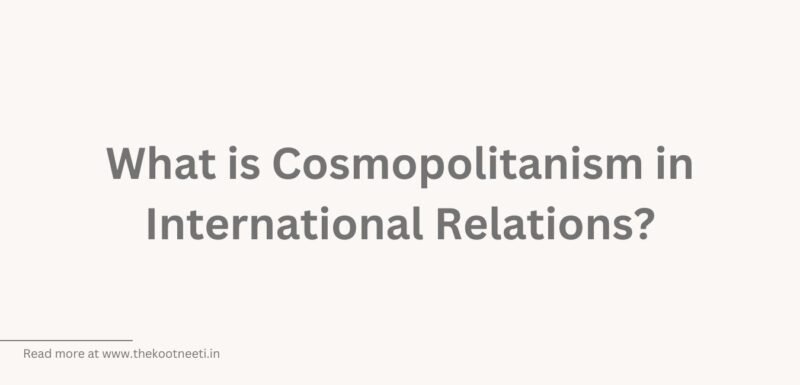What is Cosmopolitanism in International Relations?

Cosmopolitanism is an approach to international relations that emphasizes the interconnectedness and interdependence of the global community. Cosmopolitanism asserts that all people are part of a single global community and that states and other actors have obligations to one another beyond their own national borders.
Cosmopolitanism is often associated with the idea of global citizenship, in which individuals see themselves as part of a larger global community and are willing to work towards the common good. It also involves a recognition of the shared values and common interests that bind people together across national borders.
Cosmopolitanism is often contrasted with more traditional approaches to international relations, such as realism and nationalism, which emphasize the role of power and self-interest in shaping international relations. Cosmopolitanism suggests that states and other actors have a responsibility to work towards the common good and to address global problems such as poverty, inequality, and climate change.
Cosmopolitanism is a controversial concept in international relations, as it may be seen as challenging traditional notions of sovereignty and national identity. However, it is also seen as a way to promote cooperation and address global challenges in an increasingly interconnected and interdependent world.


















